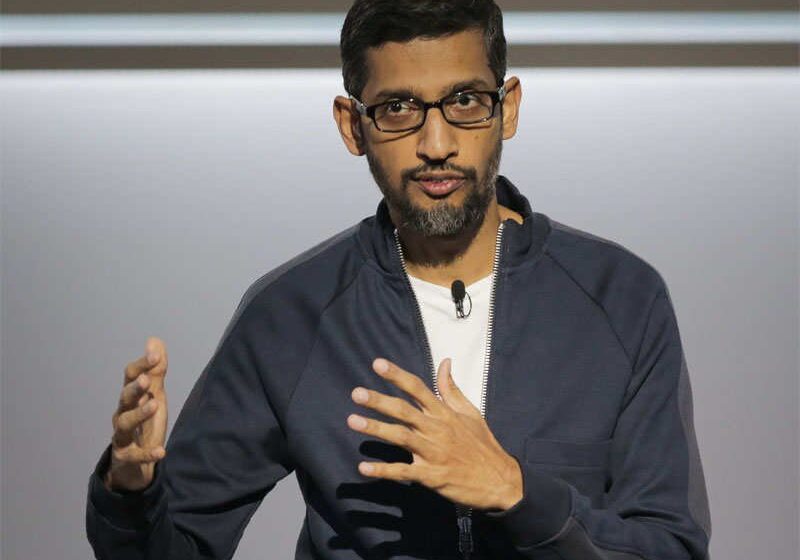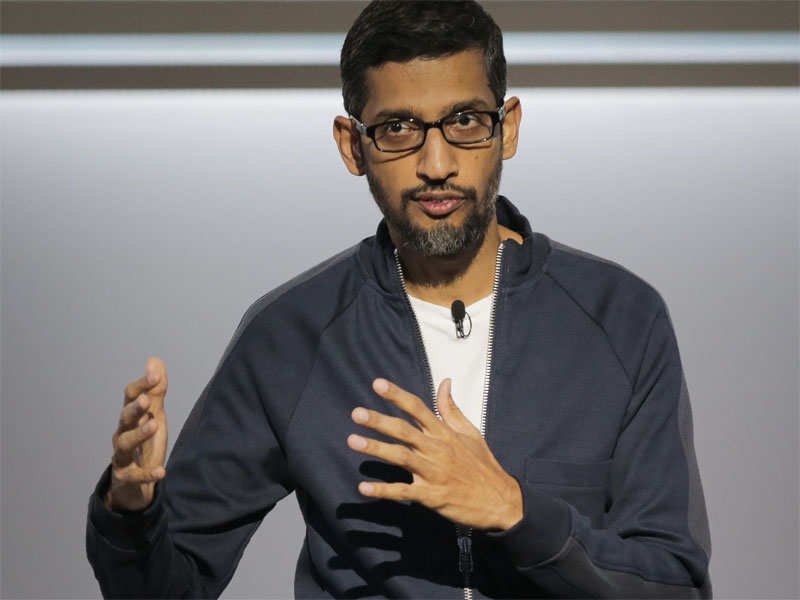Society needs to adapt for impact of AI: Sundar Pichai

 AI is set to disrupt jobs of “knowledge workers,” including writers, accountants, architects and, ironically, even software engineers
AI is set to disrupt jobs of “knowledge workers,” including writers, accountants, architects and, ironically, even software engineers
Hinting that society isn’t prepared for the rapid advancement of Artificial Intelligence (AI), Search giant Google’s Indian American CEO Sundar Pichai has warned that AI will impact “every product of every company.”
Society needs to prepare for technologies like the ones it’s already launched, he said in an interview with CBS’ “60 Minutes” that aired Sunday noting laws that guardrail AI advancements are “not for a company to decide” alone.
Read: Google products more helpful in the moments that matter: Sundar Pichai (May 13, 2022)
Referring to the human-like capabilities of products like Google’s chatbot Bard, Pichai said, “We need to adapt as a society for it.”
Talking about AI program’s “emergent properties” – the ability to learn unanticipated skills in which they were not trained, revealed how a Google program developed the ability to translate the language Bengali – even though it was never “taught” the dialect.
Pichai confessed that no one at Google could fully figure out how it came about.
“There is an aspect of this which we call, all of us in the field call it as a ‘black box,’” Pichai said. “You know, you don’t fully understand. And you can’t quite tell why it said this, or why it got [it] wrong,” he said.
When asked why Google is going full-steam ahead with AI when it does not fully understanding the technology, Pichai replied “Let me put it this way. I don’t think we fully understand how a human mind works either.”
Read: AI generated Covid-19 vaccine may provide long-lasting immunity (April 17, 2023)
The jobs that would be disrupted by AI would include “knowledge workers,” including writers, accountants, architects and, ironically, even software engineers, he said.
“This is going to impact every product across every company,” Pichai said. “For example, you could be a radiologist, if you think about five to 10 years from now, you’re going to have an AI collaborator with you. You come in the morning, let’s say you have a hundred things to go through, it may say, ‘these are the most serious cases you need to look at first.’”
“60 Minutes” viewed other areas with advanced AI products within Google, including DeepMind, where robots were playing soccer, which they learned themselves, as opposed to from humans. Another unit showed robots that recognized items on a countertop and fetched the interviewer an apple he asked for.
Warning of AI’s consequences, Pichai said that the scale of the problem of disinformation and fake news and images will be “much bigger,” adding that “it could cause harm.”
Google launched its AI chatbot Bard as an experimental product to the public last month. It followed Microsoft’s January announcement that its search engine Bing would include OpenAI’s GPT technology after the launch of ChatGPT in 2022.
Read: Vishal Sikka: AI can be a great enabler and enhancer of human potential, creativity and imagination (March 4, 2023)
Google has launched a document outlining “recommendations for regulating AI,” but Pichai said society must quickly adapt with regulation, laws to punish abuse and treaties among nations to make AI safe for the world as well as rules that “Align with human values including morality.”
“It’s not for a company to decide,” Pichai said. “This is why I think the development of this needs to include not just engineers but social scientists, ethicists, philosophers and so on.”
When asked whether society is prepared for AI technology like Bard, Pichai answered, “On one hand, I feel no, because the pace at which we can think and adapt as societal institutions, compared to the pace at which the technology is evolving, there seems to be a mismatch.”
However, he added that he’s optimistic because compared with other technologies in the past, “the number of people who have started worrying about the implications” did so early on.
Pichai also said Bard has a lot of hallucinations after the interviewer explained that he asked Bard about inflation and received an instant response with suggestions for five books that, when he checked later, didn’t actually exist.
Read: AI is dangerous, can threaten national security, society needs to adapt, says Google CEO Sundar Pichai (April 18, 2023)
When the anchor asked if nuclear arms-style global frameworks could be needed, Pichai said: “We would need that.”
Admitting that concerns about artificial intelligence keep him awake at night and that the technology can be “very harmful” if deployed wrongly, he said, “I think we have to be very thoughtful.”
“And I think these are all things society needs to figure out as we move along. It’s not for a company to decide,” he added.

